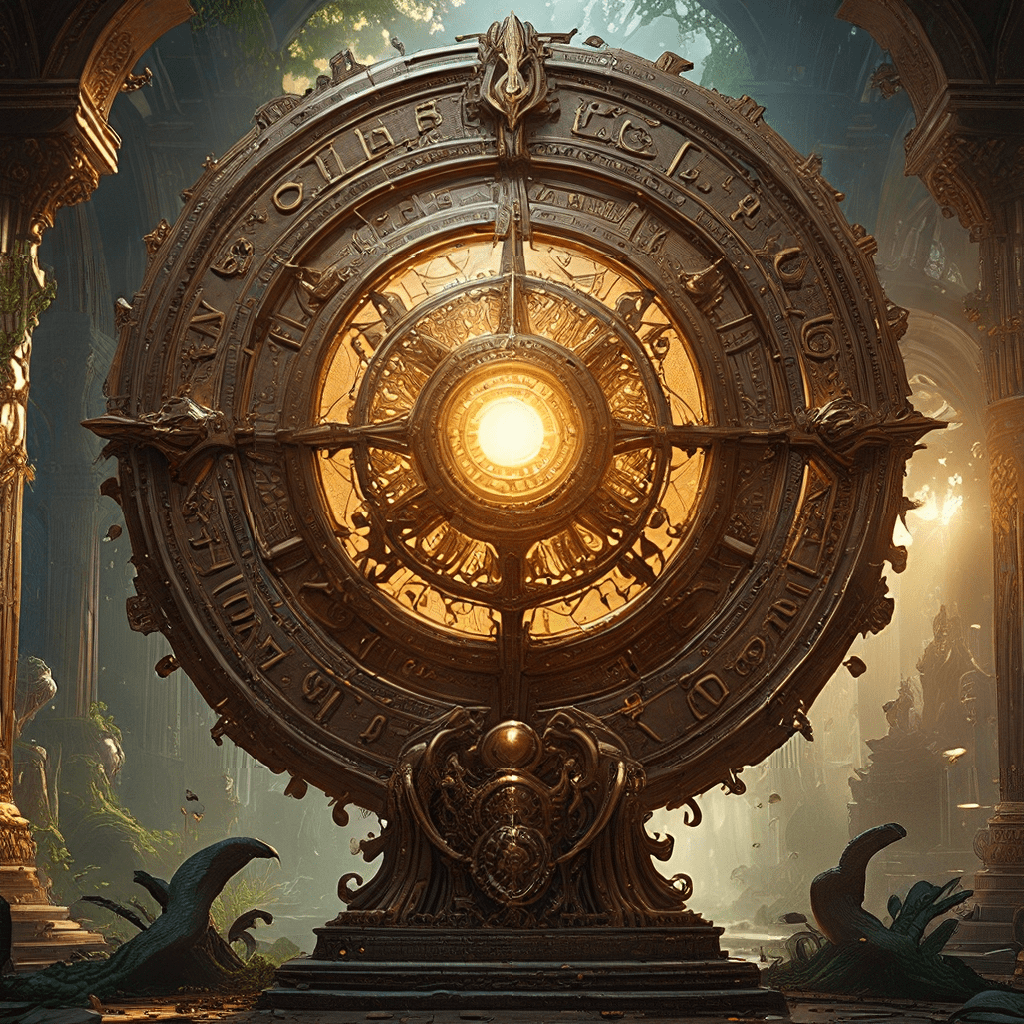The Power of Symbolism: Understanding the Language of Creation
Symbols are a universal language, transcending spoken words and conveying deep meaning across cultures and time. They are powerful tools that tap into the collective unconscious, connecting us to ancient wisdom and timeless truths. From the intricate patterns of mythology to the evocative imagery of art, symbolism weaves its way through every aspect of human experience.
1. The Universal Language of Symbols
Symbols are not merely decorative elements; they are carriers of meaning, acting as bridges between the visible and the invisible. A simple circle can symbolize unity, completeness, or the cycle of life. A cross, a common symbol in many cultures, represents sacrifice, intersection, or the four elements. These fundamental shapes and forms resonate with our subconscious minds, triggering an immediate understanding that transcends language barriers.
2. Symbolism in Mythology and Folklore
Mythology and folklore are rich tapestries woven with symbols that provide insights into ancient beliefs and values. The serpent, for example, is a recurring symbol in many mythologies, often representing both wisdom and danger. In Greek mythology, the serpent is associated with the goddess Athena, symbolizing knowledge and healing, while in other cultures, it represents the forces of chaos and the underworld.
3. Symbolic Representations in Art and Literature
Art and literature are powerful mediums for expressing symbolic meaning. Throughout history, artists and writers have used symbolism to evoke emotions, convey ideas, and inspire contemplation. A red rose in a painting may represent love and passion, while a raven in a poem could symbolize death or misfortune.
4. The Role of Symbolism in Religious Practices
Religious practices are deeply interwoven with symbolism. From sacred objects to rituals and ceremonies, symbols serve as visual reminders of spiritual truths and guide believers on their path to enlightenment. The lotus flower in Buddhism, for example, represents purity and enlightenment, while the cross in Christianity symbolizes sacrifice and redemption.
5. The Psychological Significance of Symbols
Symbols hold significant psychological weight, tapping into the depths of our unconscious minds. Carl Jung, the renowned psychologist, believed that symbols are archetypal images that resonate with universal human experiences. Dreams, for example, are often filled with symbolic imagery that offers clues to our deepest desires, fears, and motivations.
6. Symbolism in Dreams and the Unconscious
Dreams are a realm of powerful symbols that offer a glimpse into the workings of our subconscious minds. A dream about flying might symbolize freedom and liberation, while a dream about falling could represent feelings of insecurity or vulnerability. Understanding the symbolism in our dreams can provide valuable insights into our inner landscape.
7. The Power of Symbols in Ritual and Ceremony
Rituals and ceremonies are often imbued with symbolic meaning, serving as powerful tools for transformation and connection. A wedding ring, for example, symbolizes commitment and eternal love, while the lighting of a candle in a religious ceremony represents the presence of the divine.
8. Cultural Variations and the Interpretation of Symbols
While some symbols hold universal meaning, the interpretation of symbols can vary significantly across cultures. The color white, for example, is associated with purity and innocence in many Western cultures, while in some Asian cultures, it represents mourning.
9. The Evolution of Symbolism Throughout History
Symbolism has evolved throughout history, reflecting changing cultural beliefs and values. The ancient Egyptian hieroglyphs, for example, were a complex system of symbols representing language and ideas. As cultures evolved, new symbols emerged, reflecting the changing needs and aspirations of humanity.
10. The Enduring Impact of Symbolism on Human Experience
Symbolism is an integral part of the human experience, shaping our understanding of the world and ourselves. From the myths and legends we tell to the art we create, symbols connect us to something larger than ourselves, offering a sense of meaning and purpose.




